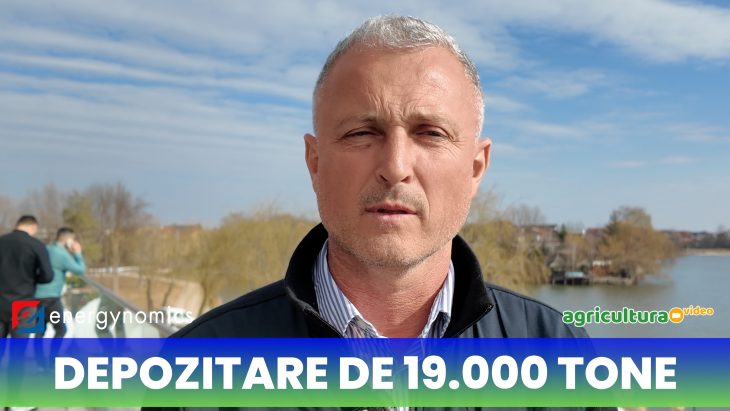Adrian Mihai, agricultura.video
Valentin Mărginean, a farmer from Mures, has submitted a project to the National Strategic Plan (NSP) DR 22 – Investments in the packaging, storage and processing of agricultural and fruit products. He wants to equip his farm with storage facilities, photovoltaic panels, a small pellet factory and an organic oil factory. The project is worth 2.9 million euros, with AFIR funding of 2.7 million euros.
The project also includes storage. “It’s not enough just to produce, sometimes we also need energy at night or at times other than when we are consuming it,” explains the farmer his decision to include the battery system. He believes it is very important to have a storage component to reduce consumption from the national grid during periods when the panels are not producing energy. The farm’s grain storage capacity is currently 10,000 tonnes, and the project will increase this by a further 9,000 tonnes. A dryer has also been built on the farm, with a consumption of 350 KWh. “Through the project we hope to cover our energy consumption for drying and conditioning grain.”
The consulting activity for photovoltaic panels is already well structured, there is experience in the country, found specialized companies that have provided consulting. He does not see a problem in finding specialists in photovoltaic installations.
He is firmly convinced of the need to invest in these facilities. He is determined to invest in the panels with his own funds, in case the funding is not approved because of the score. However, he also has some legislative and fiscal concerns. “We hope that legislation will also encourage access to green energy, we have the sun and we need to take advantage of it. Legislation should be more permissive, it seems that certain taxes are put in place. I don’t think it’s fair,” says Mărginean. “Talking about the carbon footprint, this would be a solution to produce green energy, so the activity should be supported, not taxed, in the case of small households, farms, for self-consumption,” adds the farmer.
